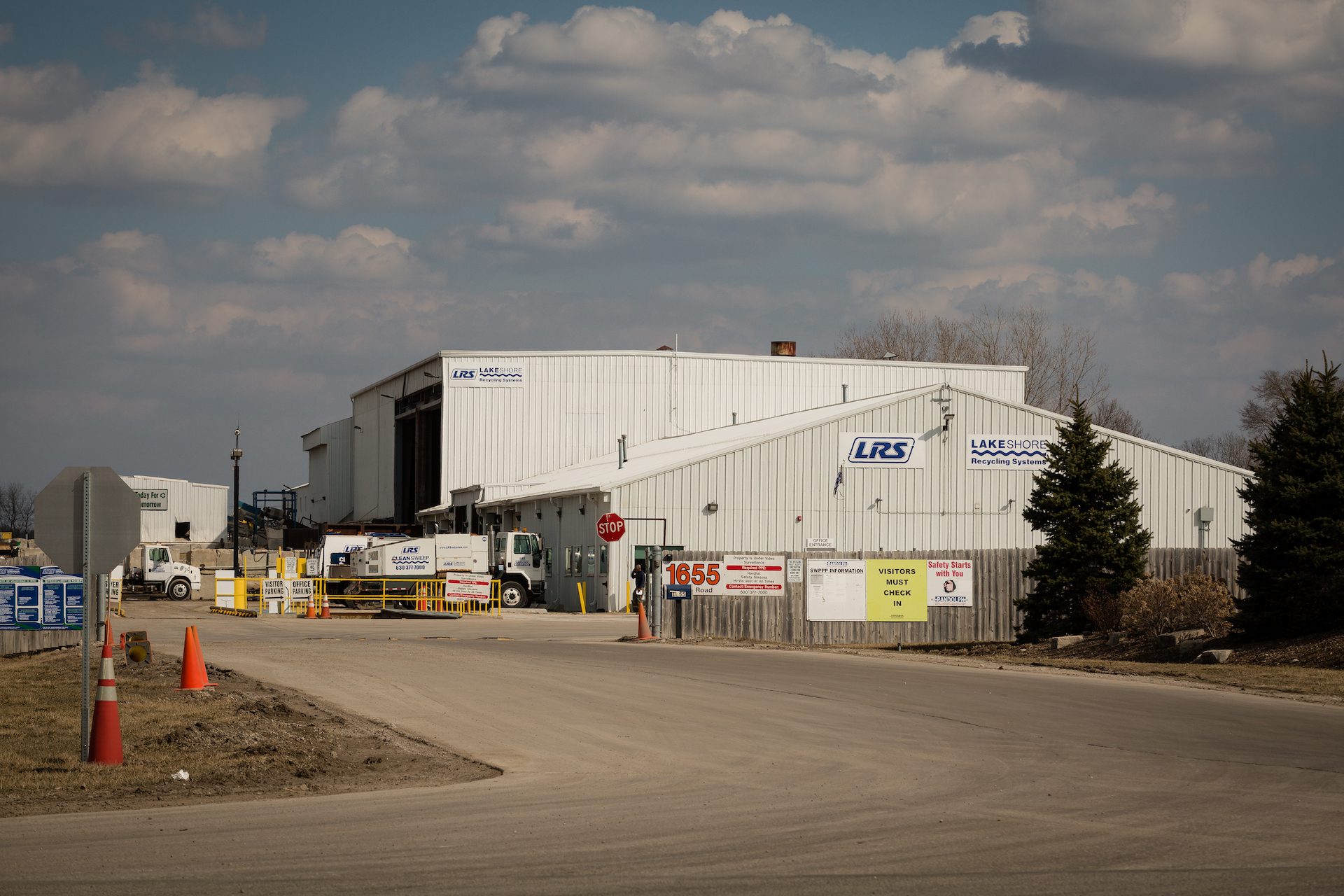 Michelle Kanaar/Revista sin fronteras
Michelle Kanaar/Revista sin fronterasLa Junta de Control de la Contaminación de Illinois denegó la solicitud de Lakeshore Recycling Systems para abrir una polémica estación de residuos tras no notificarlo debidamente a un propietario cercano.
La junta estatal de contaminación detuvo un controvertido plan para una segunda estación de residuos después de que la empresa no notificara adecuadamente a una propiedad vecina en West Chicago.
¿Quiere recibir historias como ésta en su bandeja de entrada todas las semanas?
Suscríbase a nuestro boletín gratuito.

La semana pasada, la Junta de Control de la Contaminación de Illinois se puso del lado de los grupos de la comunidad de West Chicago que luchan contra los planes de Lakeshore Recycling Systems (LRS) de ampliar las instalaciones existentes mediante la adición de una segunda estación de transferencia de residuos sólidos en el suburbio occidental de mayoría latina.
En Decisión de la Junta por 4-0 dijo que la ciudad carecía de jurisdicción para revisar la solicitud del transportista de residuos porque LRS no notificó adecuadamente su propuesta a uno de los propietarios adyacentes. La decisión de la Junta anuló la aprobación por el ayuntamiento de la solicitud de LRS de febrero de 2023.
LRS aún puede recurrir la decisión de la Junta ante el Tribunal de Apelación de Illinois o volver a presentar una solicitud a la ciudad de West Chicago para iniciar de nuevo el proceso de ubicación.
La decisión llega después de más de dos años de esfuerzos comunitarios para detener la expansión de LRS. El grupo conocido como Protect West Chicago argumentó que la audiencia pública y proceso de aprobación de la ciudad carecía de transparencia e imparcialidad fundamental. People Opposing DuPage Environmental Racism (PODER), un subcomité de Solidaridad con los Inmigrantes de DuPage, argumentó que los residentes de West Chicago, un pueblo de mayoría latina, experimentarían niveles de contaminación mayores y desproporcionados con este desarrollo.
La decisión de la junta estatal no abordó estos argumentos. La Junta declaró que no necesitaba abordar las restantes cuestiones de equidad o justicia medioambiental, ya que LRS no cumplía los Ley de Protección del Medio Ambiente de Illinois requisito preliminar de "notificación estricta".
"Esto sienta un precedente para nuestra comunidad", dijo Julieta Alcantar-García, residente de toda la vida en el oeste de Chicago, que intervino en las audiencias municipales y estatales sobre la propuesta de estación de basura. "Más vale que las empresas se aseguren de que lo que piensan traer a nuestra comunidad es algo que queremos".
Robert Weinstock, director del Centro de Defensa del Medio Ambiente de la Universidad Northwestern, que representó pro bono a Alcantar-García y PODER, se mostró "agradecido" por la anulación de la decisión anterior de la ciudad, pero argumentó que la Junta no fue lo suficientemente lejos. "Nos decepciona que la Junta no haya aprovechado esta oportunidad para anunciar claramente que las consideraciones de justicia ambiental deben tenerse en cuenta en este tipo de casos".
La Ley de Protección del Medio Ambiente de Illinois establece nueve criterios que deben cumplirse para que los municipios aprueben instalaciones de control de la contaminación, entre ellas que la instalación se diseñe teniendo en cuenta la seguridad de la salud pública y que sea necesaria para satisfacer las necesidades de residuos de la zona.
En un escrito presentado a la Junta de Control de la Contaminación de Illinois en diciembre, el LRS argumentó que ambos grupos opositores estaban utilizando el término "justicia medioambiental" de forma demasiado simplista, sin tener en cuenta lo que significa. PODER argumentó que la segunda instalación de transferencia de residuos aumentaría la contaminación atmosférica existente hasta niveles inaceptables, lo que, según LRS, no podía demostrarse. LRS y Protect West Chicago no respondieron a las peticiones de comentarios.
En un declaración publicada el lunes, la ciudad de West Chicago se mostró en desacuerdo con la decisión del consejo estatal, que calificó de "centrada únicamente en un aspecto muy técnico". En su declaración, los funcionarios de la ciudad creían que el Tribunal de Apelación confirmaría la decisión del ayuntamiento.
Según el plan, la instalación propuesta de LRS sería un punto de transferencia para que los camiones de basura municipal pasaran sus cargas a remolques más grandes que transportaran la basura a vertederos más lejanos. Las instalaciones ampliadas aceptarían hasta 650 toneladas diarias de residuos sólidos urbanos, lo que aumentaría el tráfico de camiones de LRS en la zona de 43 a 105 para los camiones de basura urbanos y de dos a 20 para los semirremolques, según las estimaciones de la empresa. Otro transportista de residuos, Groot, ya opera una estación de transferencia de residuos a media milla al norte de la instalación propuesta de LRS, procesando 1.500 toneladas de basura al día procedentes de West Chicago y los suburbios circundantes.
Steve de la Rosa, voluntario de PODER, espera que LRS siga intentando que se apruebe su solicitud. Su grupo seguirá luchando para que todas las audiencias y la información estén disponibles en español.
"LRS va a volver", dijo De la Rosa. "No van a dar marcha atrás. Vamos a reunirnos y a elaborar una estrategia sobre cómo vamos a responder".

Da poder a las voces de los inmigrantes
Nuestro trabajo es posible gracias a las donaciones de personas como usted. Apoye la información de alta calidad haciendo una donación deducible de impuestos hoy mismo.
